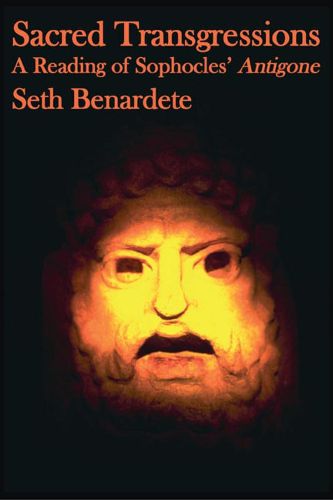Readings Newsletter
Become a Readings Member to make your shopping experience even easier.
Sign in or sign up for free!
You’re not far away from qualifying for FREE standard shipping within Australia
You’ve qualified for FREE standard shipping within Australia
The cart is loading…






This detailed commentary on the action and argument of Sophocles’ Antigone is meant to be a reflection on and response to Hegel’s interpretation in the Phenomenology (VI.A.a-b), and includes, in addition, two appendixes dealing with Aeschylus’ Septem. It thus moves within the principles Hegel discovers in the play but reinserts them into the play as they show themselves across the eccentricities of its plot. Wherever plot and principles do not match, there is a glimmer of the argument: Haemon speaks up for the city and Tiresias for the divine law but neither for Antigone. The guard who reports the burial and presents Antigone to Creon is as important as Antigone or Creon for understanding Antigone. The Chorus too in their inconsistent thoughtfulness have to be taken into account, and in particular how their understanding of the canniness of man reveals Antigone in their very failure to count her as a sign of man’s uncanninesss: She who is below the horizon of their awareness is at the heart of their speech. Megareus, the old son of Creon, who sacreficied his life for the city, looms as large as Eurydice, whose suicide has nothing in common with Antigone’s. She is all-mother ; Antigone is anti-generation.
$9.00 standard shipping within Australia
FREE standard shipping within Australia for orders over $100.00
Express & International shipping calculated at checkout
This detailed commentary on the action and argument of Sophocles’ Antigone is meant to be a reflection on and response to Hegel’s interpretation in the Phenomenology (VI.A.a-b), and includes, in addition, two appendixes dealing with Aeschylus’ Septem. It thus moves within the principles Hegel discovers in the play but reinserts them into the play as they show themselves across the eccentricities of its plot. Wherever plot and principles do not match, there is a glimmer of the argument: Haemon speaks up for the city and Tiresias for the divine law but neither for Antigone. The guard who reports the burial and presents Antigone to Creon is as important as Antigone or Creon for understanding Antigone. The Chorus too in their inconsistent thoughtfulness have to be taken into account, and in particular how their understanding of the canniness of man reveals Antigone in their very failure to count her as a sign of man’s uncanninesss: She who is below the horizon of their awareness is at the heart of their speech. Megareus, the old son of Creon, who sacreficied his life for the city, looms as large as Eurydice, whose suicide has nothing in common with Antigone’s. She is all-mother ; Antigone is anti-generation.